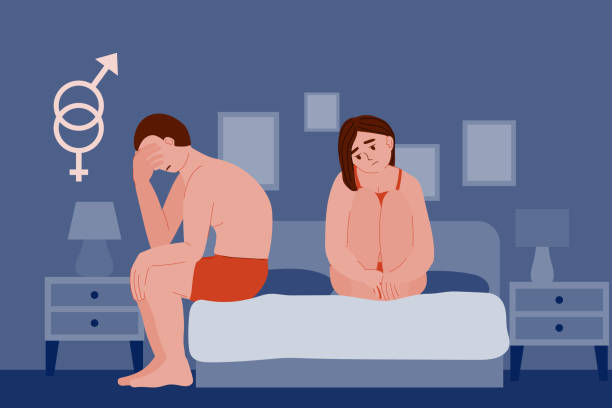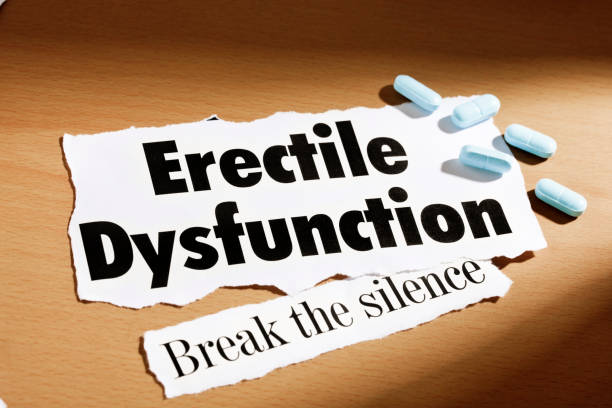Erectile dysfunction (ED) is a widespread issue that impacts millions of men across the globe. While many view it as a standalone problem, ED can actually serve as an important warning sign of underlying health concerns. Conditions such as heart disease, diabetes, high blood pressure, and hormonal imbalances can all contribute to erectile difficulties. Understanding the connection between ED and overall health is crucial for identifying potential medical issues early.
In this blog post, we’ll explore what erectile dysfunction may reveal about your body, why it shouldn’t be ignored, and how addressing the root causes can improve both your sexual health and overall well-being.
Erectile dysfunction (ED) is the persistent difficulty in achieving or maintaining an erection firm enough for sexual intercourse. While occasional erection issues are normal, frequent or ongoing problems may indicate an underlying health condition. ED can affect men of all ages, though it becomes more common with age.
Factors such as poor circulation, hormone imbalances, stress, and lifestyle choices can contribute to erectile difficulties. Understanding the causes of ED is essential for finding effective treatments and improving overall health.

ED and Your Heart Health
Erectile dysfunction (ED) can be an important indicator of your cardiovascular health. Since achieving and maintaining an erection relies on healthy blood flow, any blockages or narrowing of blood vessels can reduce circulation and contribute to ED. In many cases, poor erectile function is one of the earliest signs of heart disease.
Research suggests that men with ED have a higher risk of developing serious cardiovascular conditions, including heart attacks, strokes, and high blood pressure. Because ED often appears before noticeable heart symptoms, it can serve as a crucial warning sign. If you’re experiencing persistent erectile difficulties, consulting a doctor for a heart health screening can help detect potential problems early and reduce your risk of serious complications.
Diabetes and Erectile Dysfunction
Diabetes is a well-known risk factor for erectile dysfunction (ED), affecting both type 1 and type 2 diabetes patients. High blood sugar levels can damage nerves and blood vessels, leading to poor circulation, which is essential for achieving and maintaining an erection. Over time, uncontrolled diabetes can cause significant vascular damage, making it more difficult for blood to flow to the penis and resulting in persistent ED.
Men with diabetes are more likely to experience erectile dysfunction at an earlier age compared to those without the condition. If you have diabetes and struggle with ED, managing your blood sugar levels is crucial. A combination of a balanced diet, regular exercise, medication, and medical guidance can help improve blood flow, support nerve health, and reduce the impact of diabetes on sexual function. Consulting your doctor about effective diabetes management strategies can lead to better overall health and improved sexual well-being.

High Blood Pressure and Erectile Dysfunction
High blood pressure, or hypertension, is a significant risk factor for erectile dysfunction (ED). When blood pressure remains elevated over time, it can cause damage to the blood vessels, reducing their ability to transport blood efficiently. Since proper blood flow is essential for achieving and maintaining an erection, restricted circulation due to hypertension can lead to erectile difficulties. Additionally, some medications used to treat high blood pressure, such as beta-blockers and diuretics, may also contribute to ED by affecting blood flow and nerve function.
Managing hypertension is crucial for both overall health and sexual well-being. Lifestyle changes like eating a heart-healthy diet rich in fruits, vegetables, and whole grains, engaging in regular physical activity, maintaining a healthy weight, and managing stress can help lower blood pressure and improve erectile function. If you have high blood pressure and are experiencing ED, speak with your doctor about alternative treatment options that can support both heart health and sexual performance.
Hormonal Imbalances and Erectile Dysfunction
Hormones play a crucial role in sexual health, and an imbalance—particularly low testosterone—can contribute to erectile dysfunction (ED). Testosterone is the primary male hormone responsible for sex drive, energy levels, and the ability to achieve and maintain an erection. When testosterone levels are low, men may experience reduced libido, fatigue, mood changes, and difficulty with erections.
While testosterone naturally declines with age, other factors such as obesity, chronic stress, poor sleep, and medical conditions like diabetes or thyroid disorders can also lead to hormonal imbalances. In some cases, high levels of estrogen or elevated cortisol from prolonged stress can further impact sexual function.
If you suspect that low testosterone or another hormonal issue is affecting your sexual health, it’s important to consult a doctor. Blood tests can help determine hormone levels, and treatment options like lifestyle changes, testosterone replacement therapy, or addressing underlying medical conditions may help restore balance and improve erectile function.

Mental Health and Erectile Dysfunction
Your mental health plays a significant role in your ability to achieve and maintain an erection. Psychological factors such as stress, anxiety, depression, and relationship issues can contribute to erectile dysfunction (ED) by interfering with sexual desire and arousal. When the mind is preoccupied with worries or negative emotions, the body may not respond to sexual stimuli as it normally would, making it difficult to get or sustain an erection. Performance anxiety—where fear of failure leads to ongoing ED—can also create a cycle of stress that worsens the condition.
If your ED is linked to mental health concerns, seeking support through therapy or counseling can be highly beneficial. A mental health professional can help you work through emotional challenges, identify triggers, and develop coping strategies. Additionally, incorporating stress-reduction techniques such as mindfulness, deep breathing, meditation, and regular exercise can improve overall mental well-being, enhance relaxation, and support healthier sexual function. If ED is affecting your confidence or relationships, open communication with your partner and professional guidance can help restore intimacy and improve sexual health.
Lifestyle Factors That Contribute to Erectile Dysfunction
Your daily habits and lifestyle choices can have a significant impact on your sexual health. Unhealthy behaviors such as smoking, excessive alcohol consumption, a poor diet, and a sedentary lifestyle can contribute to erectile dysfunction (ED) by damaging blood vessels, reducing circulation, and affecting hormone levels. Over time, these factors can make it more difficult to achieve and maintain an erection. Additionally, obesity and chronic stress can further increase the risk of ED by contributing to conditions like high blood pressure, diabetes, and low testosterone.
Making positive lifestyle changes can improve overall health and enhance erectile function. Here are some key strategies to consider:
✅ Quit Smoking: Smoking damages blood vessels and restricts blood flow, increasing the risk of ED. Quitting can improve circulation and support better sexual health.
✅ Limit Alcohol Intake: Excessive alcohol consumption can interfere with testosterone levels and nerve function, making it harder to get and maintain an erection. Moderation is key.
✅ Exercise Regularly: Engaging in physical activity, such as cardio and strength training, improves circulation, reduces stress, and supports heart health—factors that all contribute to better erectile function.
✅ Eat a Nutrient-Rich Diet: A diet high in fruits, vegetables, whole grains, healthy fats, and lean proteins can help maintain optimal blood flow and hormone balance, reducing the risk of ED.
✅ Manage Stress and Sleep Well: Chronic stress and poor sleep quality can lead to hormonal imbalances and anxiety, both of which negatively affect sexual performance. Relaxation techniques, mindfulness, and proper sleep hygiene can help.
By adopting a healthier lifestyle, you can not only reduce the risk of ED but also improve overall well-being, energy levels, and confidence in the bedroom. If you’re experiencing persistent erectile issues, consulting a doctor can help identify underlying causes and treatment options.
When to See a Doctor
If you’re experiencing erectile dysfunction, it’s important to speak with a healthcare provider. ED can be a sign of a serious health condition, so it’s crucial to get a proper diagnosis. Your doctor can perform tests to determine the underlying cause of your ED and recommend treatment options that are right for you.
In some cases, lifestyle changes or medications may be enough to address the problem. However, more serious conditions may require additional treatment or intervention. Don’t ignore the issue—addressing ED early can help prevent further complications and improve your overall health.
Conclusion: Prioritizing Your Health and Sexual Well-Being
Erectile dysfunction (ED) is more than just a sexual health concern—it can be an important warning sign of underlying medical conditions such as heart disease, diabetes, high blood pressure, and hormonal imbalances. Understanding the connection between ED and overall health allows you to take proactive steps to address the root causes, rather than just treating the symptoms.
By making healthy lifestyle changes—such as quitting smoking, exercising regularly, maintaining a balanced diet, managing stress, and getting quality sleep—you can improve circulation, hormonal balance, and overall well-being. Seeking medical guidance is also essential; a healthcare provider can help diagnose any underlying conditions and recommend the right treatment options.
Remember, ED is often your body’s way of signaling a deeper health issue. By paying attention to these warning signs and taking action early, you can improve not only your sexual health but also your long-term vitality. Don’t ignore the symptoms—invest in your well-being today for a healthier future.

